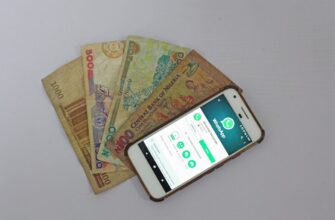- Introduction: Navigating Airdrop Taxation in Thailand
- What Are Crypto Airdrops?
- Thai Tax Laws for Airdrop Income
- Calculating Your Airdrop Tax Liability
- Reporting and Payment Process
- Consequences of Non-Compliance
- FAQs: Paying Taxes on Airdrop Income in Thailand
- Staying Compliant in Thailand’s Evolving Crypto Landscape
Introduction: Navigating Airdrop Taxation in Thailand
With Thailand’s crypto adoption surging, many investors are receiving free tokens through airdrops – but few realize these “gifts” may carry tax obligations. Understanding how to pay taxes on airdrop income in Thailand is crucial to avoid penalties. This guide breaks down Thai Revenue Department regulations, calculation methods, and filing procedures to keep you compliant while participating in the blockchain ecosystem.
What Are Crypto Airdrops?
Airdrops occur when blockchain projects distribute free tokens or coins to wallet addresses, typically to:
- Reward existing token holders
- Promote new projects
- Decentralize token ownership
- Incentivize network participation
Unlike hard forks or staking rewards, airdrops arrive unexpectedly without direct action from recipients. However, Thailand’s tax authorities still classify them as assessable income.
Thai Tax Laws for Airdrop Income
Under Section 40 of Thailand’s Revenue Code, airdrops fall under “income from other sources.” Key regulations include:
- Taxable Event: Income arises when you gain control of the tokens (i.e., when they appear in your wallet)
- Valuation: Use market price in THB at receipt date
- Tax Rate: Progressive rates from 0% to 35% based on total annual income
- Exemption: No personal allowance applies – all airdrop value is taxable
The Revenue Department clarified in 2022 that all crypto assets – including airdrops – qualify as taxable assets under existing frameworks.
Calculating Your Airdrop Tax Liability
Follow these steps to determine what you owe:
- Identify taxable airdrops: Compile all tokens received during the tax year
- Determine receipt date: Use the blockchain timestamp when tokens became transferable
- Convert to THB: Use exchange rates from credible sources like Bank of Thailand or CoinMarketCap on that date
- Sum total value: Add all airdrop values in THB
- Apply income tax brackets: Include this sum with other annual income
Example: If you received 500 XYZ tokens valued at ฿10/token on receipt date, your taxable income increases by ฿5,000.
Reporting and Payment Process
To declare airdrop income:
- File P.N.D.90 or P.N.D.91 between January 1-March 31
- Report under “Other Income” (Box 8)
- Maintain records of:
- Wallet addresses
- Transaction IDs
- Receipt dates
- THB conversion sources
- Pay any owed tax by April 30
E-filing via the Revenue Department’s website is mandatory for crypto-related income declarations.
Consequences of Non-Compliance
Failure to report airdrop income may result in:
- 1.5% monthly penalty on unpaid tax
- 100% surcharge on evaded amounts
- Criminal charges for severe cases
- Audit triggers from exchange data sharing
The Revenue Department actively collaborates with Thai SEC and exchanges to identify non-filers.
FAQs: Paying Taxes on Airdrop Income in Thailand
Do I pay tax if I haven’t sold the airdropped tokens?
Yes. Tax applies upon receipt regardless of whether you hold or sell the tokens. Selling later may trigger additional capital gains tax.
How do I value tokens with no immediate market price?
Use the project’s token sale price, fair market value of similar assets, or valuation by a licensed appraiser. Document your methodology.
Are DeFi airdrops treated differently?
No. All airdrops – whether from CeFi, DeFi, or NFT projects – follow the same tax treatment under current Thai law.
Can losses from airdrops offset other income?
No. Since airdrops are taxed as income at receipt, subsequent value decreases don’t create deductible losses. Only capital losses from sales may be offset against capital gains.
Do small airdrops need reporting?
Technically yes, but the Revenue Department typically focuses on material amounts. However, consistent small unreported airdrops could raise red flags during audits.
Staying Compliant in Thailand’s Evolving Crypto Landscape
As Thailand refines its digital asset regulations, proactive tax compliance remains essential. Document all airdrops meticulously, consult a Thai tax professional for complex cases, and file accurately to avoid penalties. By understanding how to properly pay taxes on airdrop income in Thailand, you protect yourself while supporting the legitimacy of the crypto ecosystem.








